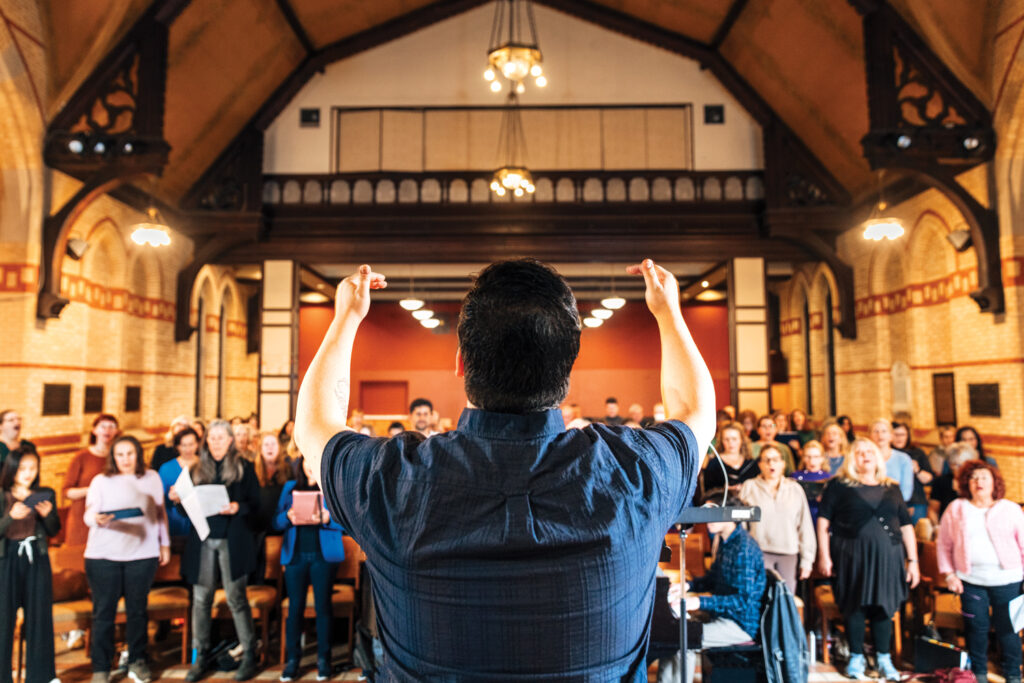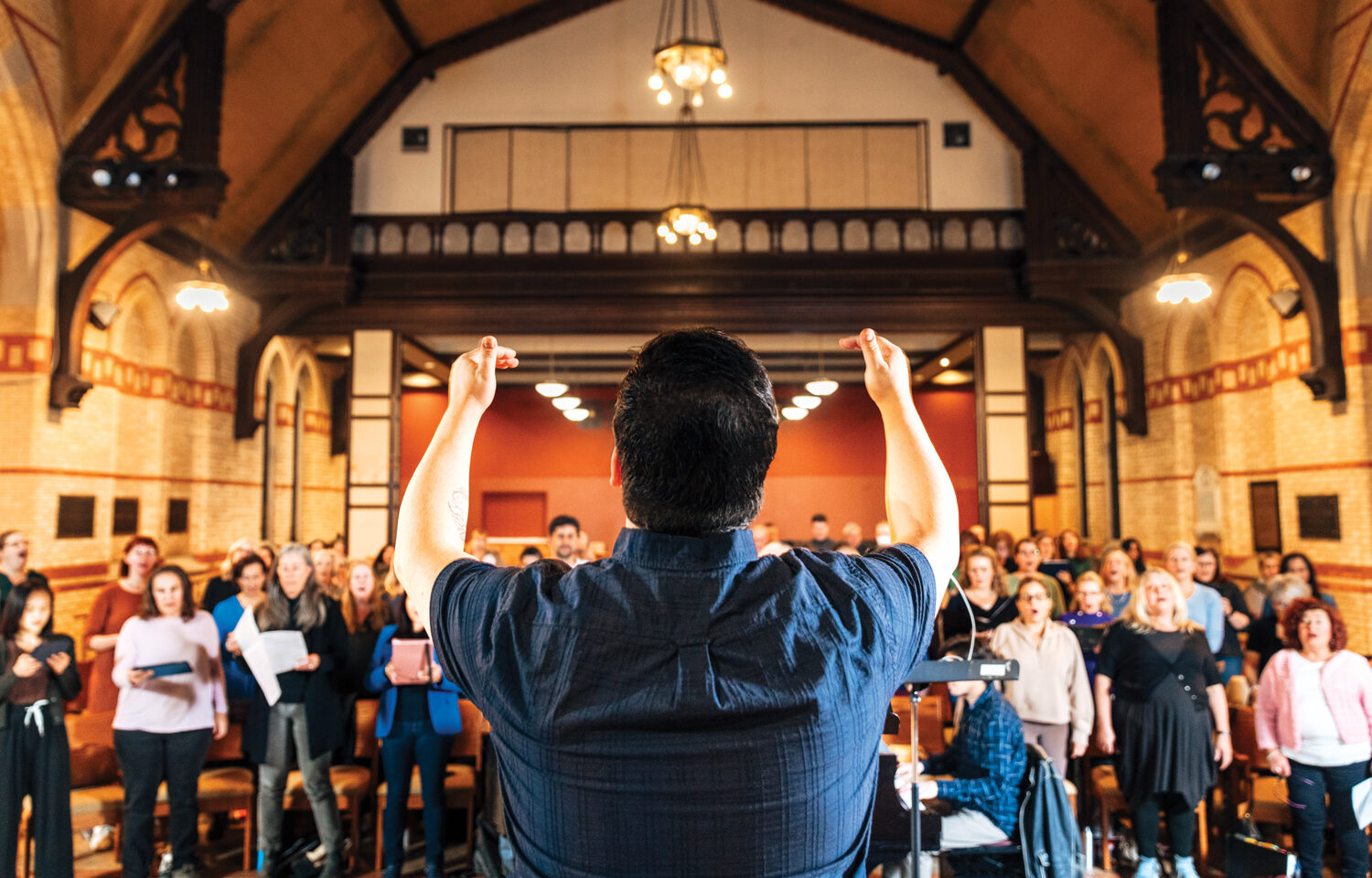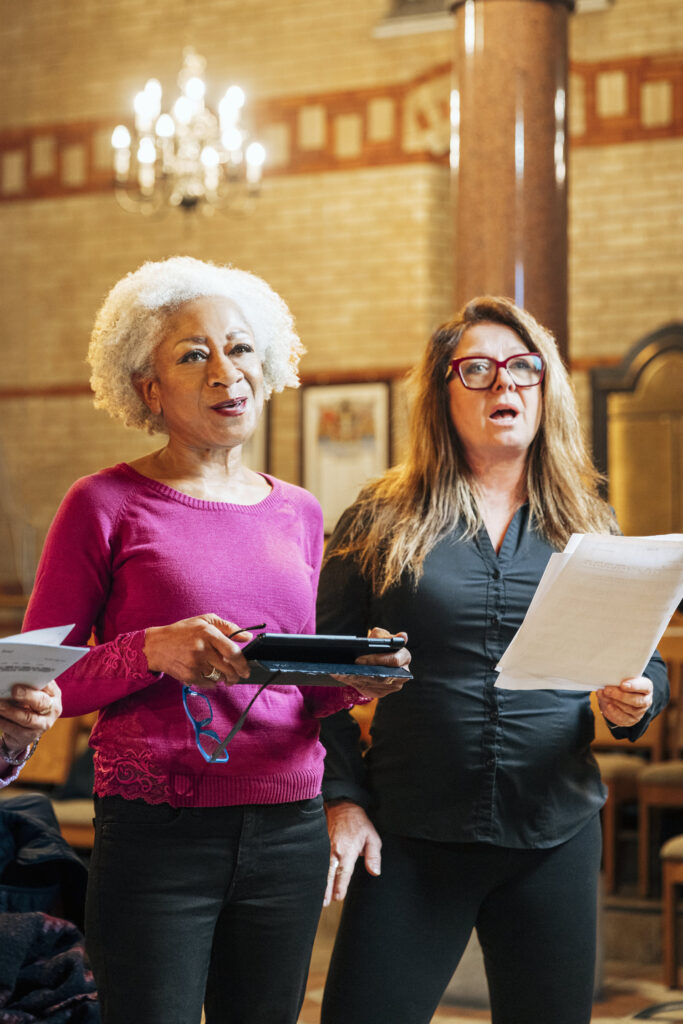When the TMU-based SingWell project invites participants to join a singing group, many initially react with resistance. “Part of me said, ‘You’re kidding. Me? Sing? With this voice? No!’” remembers Alex, a SingWell choir member who has aphasia, a disorder that impairs the ability to produce and comprehend language. But after attending dozens of sessions, usually an hour of warm-up exercises and singing followed by refreshments and socializing, Alex is grateful he joined. “The choir was very helpful ... it’s an exercise that maintains some sense that you’re still part of what’s going on in this world.”
The seed for The SingWell Project was planted in 2012, when TMU psychology professor Frank Russo led a research study showing that people with Parkinson’s disease could express their emotions fluidly when singing. The effect continued after singing, in structured conversations. Parkinson’s disease is a movement disorder of the nervous system that disrupts signals from the nerves to the muscles. It makes it harder for people to use their vocal cords and facial muscles to portray emotion.
“That led us to wonder, might we do this with a community choir?” Russo said. In the years since, the SingWell Project has helped launch dozens of community choirs and singing groups, all focused on boosting health, well-being and communication abilities. The project partners with organizations that serve populations who can especially benefit from singing and offers best practice guidelines for choir leaders.
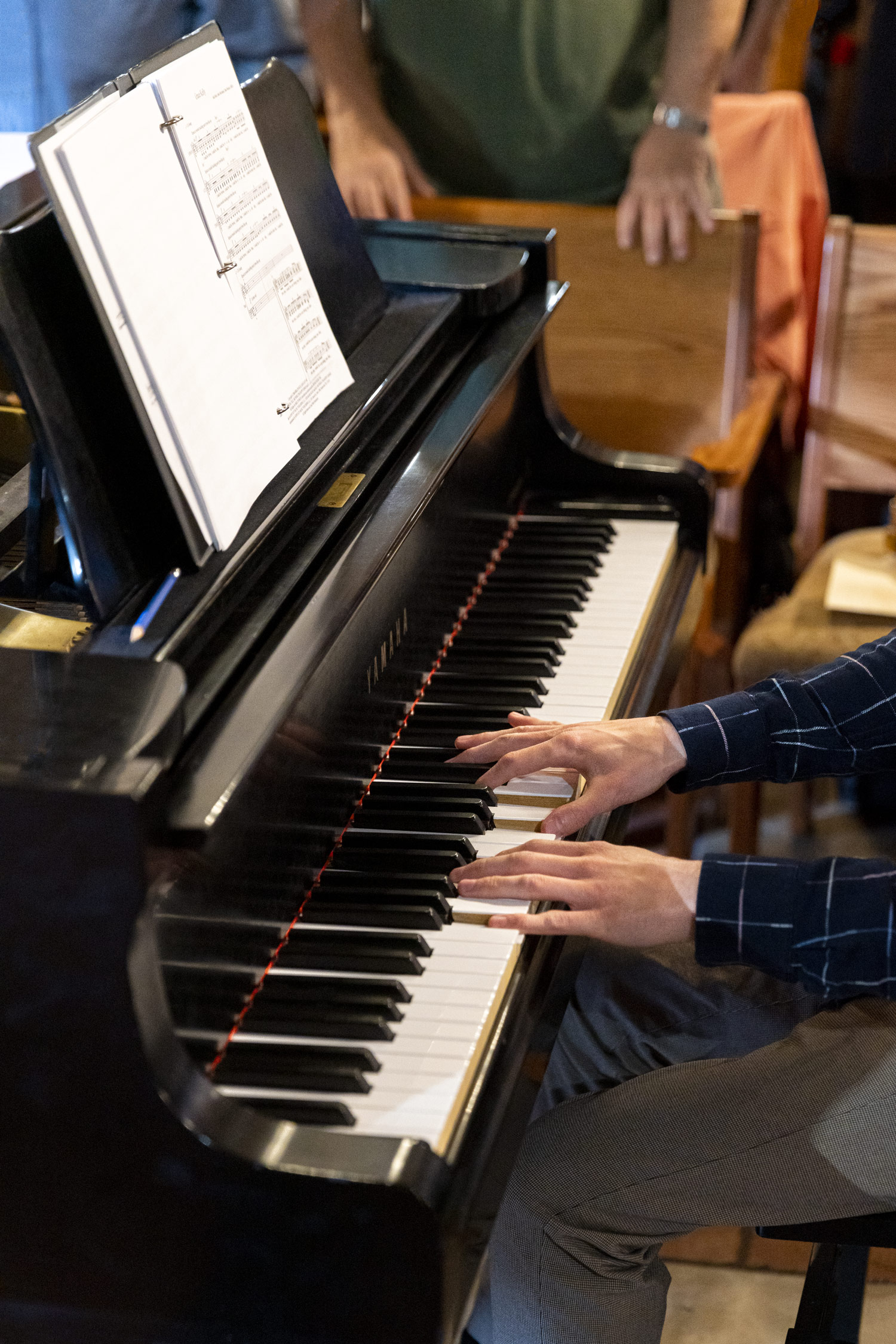
Led by TMU researchers Frank Russo and Arla Good, the SingWell Project has helped launch dozens of community choirs and singing groups that focus on boosting health, well-being and communication abilities.
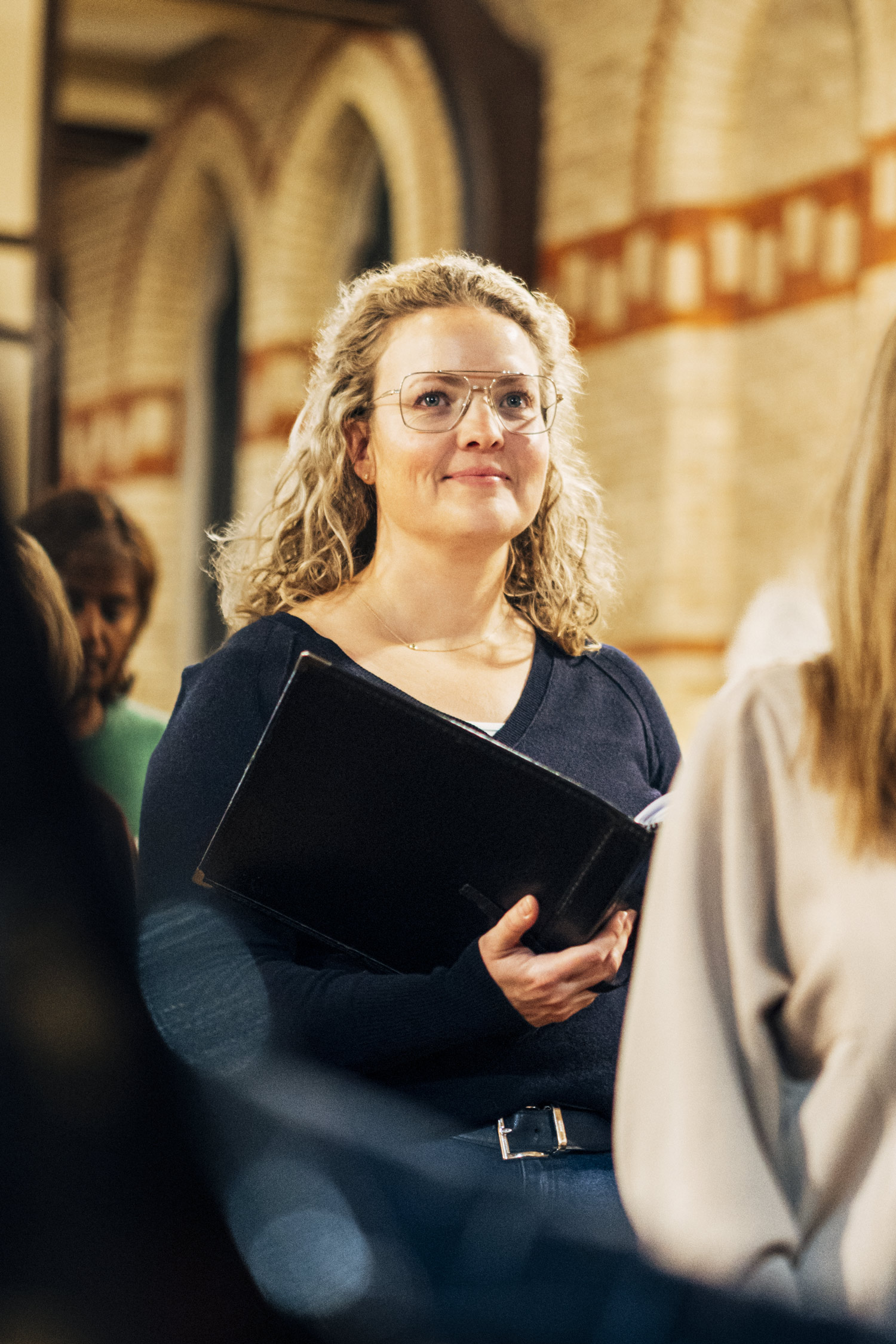
TMU professor Frank Russo's research has shown the health benefits of singing in a choir.


